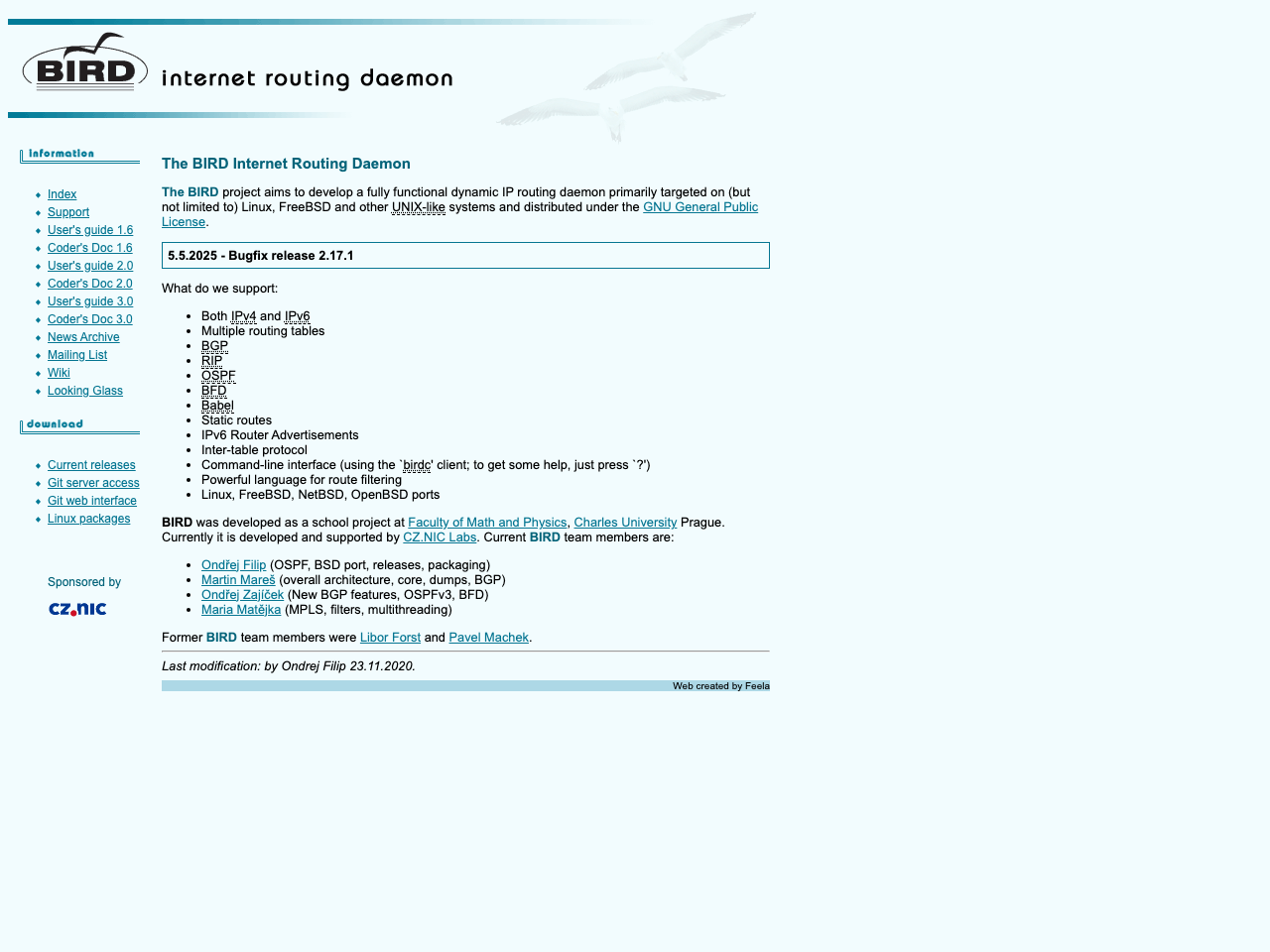The BIRD Internet Routing Daemon
BIRD is a highly versatile and Open Source dynamic IP routing daemon supporting a wide range of protocols and operating systems.
Description
The BIRD Internet Routing Daemon is a fully functional, Open Source dynamic IP routing daemon primarily designed for Linux, FreeBSD, and other Unix-like systems. It's released under the GNU General Public License and supports both IPv4 and IPv6, offering multiple routing tables and a variety of routing protocols including BGP, RIP, OSPF, BFD, and Babel. BIRD also features static routes, IPv6 router advertisements, an inter-table protocol, a command-line interface (birdc), a powerful route filtering language, and is actively developed and supported by CZ.NIC Labs. The project's history traces back to a school project at Charles University in Prague.
Features
Key features of BIRD include support for both IPv4 and IPv6 addressing, multiple routing tables for isolating network segments, and a wide range of supported routing protocols (BGP, RIP, OSPF, BFD, Babel, and static routes). It provides IPv6 router advertisements, an inter-table protocol for communication between routing tables, and a command-line interface (birdc) for easy management. A powerful, embedded language enables sophisticated route filtering and manipulation. BIRD is highly portable, with support for various Unix-like operating systems like Linux, FreeBSD, NetBSD, and OpenBSD.
Benefits
BIRD offers numerous benefits, including its Open Source nature, robust support for various routing protocols, efficient routing table management, powerful route filtering capabilities for enhanced security and policy control, and its adaptability to different Unix-like operating systems. Its active development community ensures regular updates, bug fixes, and new feature additions. Its command-line interface and documentation makes it easier to manage and maintain. The support of both IPv4 and IPv6 allows better internet protocol handling. The project is actively maintained and enjoys a supportive community. Its use contributes to a more open and interoperable internet infrastructure.
Links
- Home: https://bird.network.cz/
- Source code: https://github.com/CZ-NIC/bird
- Open Source
- ✅
- European
- ✅
- Country
- CZ
- Source code
- https://github.com/CZ-NIC/bird
